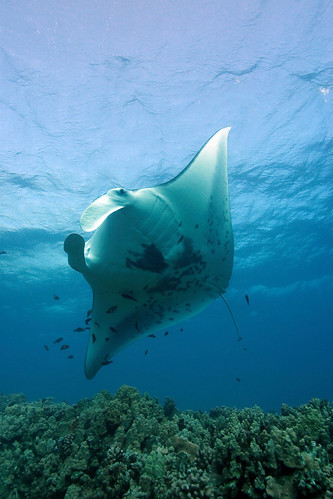 A large majority of global citizens believe governments must take the needs of future generations into account when they set rules governing the global ocean, according to a survey conducted in 13 countries across the world on behalf of the Global Ocean Commission.
A large majority of global citizens believe governments must take the needs of future generations into account when they set rules governing the global ocean, according to a survey conducted in 13 countries across the world on behalf of the Global Ocean Commission. The Commission, an independent task force of international leaders working to address threats and challenges to our ocean, released the findings on the eve of its first meeting, in Cape Town, South Africa.
Eighty-five percent of those surveyed agreed that ‘Governments must take the needs of future generations into account when deciding how international parts of the ocean should be used and governed’. Only 5% disagreed.
The strongest endorsement was found in China, where 93% of respondents agreed with the statement, and in Indonesia, with 90%. In no country surveyed was support below 75%.
‘The results show that people around the world are concerned for the future of their ocean and the good things it provides,’ said Trevor Manuel, South African Minister in the Presidency and a Co-chair of the Global Ocean Commission.
‘The Commission’s objective is to chart the course towards a sustainably productive ocean, and to do it quickly; the survey suggests that people around the world would support that.’
The survey also showed that people appreciate the importance of the ocean for life itself. Asked what proportion of the oxygen they breathe comes from the ocean, people on average put the figure at 43%, close to the scientific estimate of about 50%.
‘Food from the sea, production of oxygen, absorption of carbon dioxide; we all depend on the global ocean, and the survey suggests people understand that very well, which is encouraging and timely for our work,’ said José María Figueres, former President of Costa Rica and a Co-chair of the Global Ocean Commission.
‘Unfortunately, evidence from scientists shows pressures on the ocean are increasing, with a third of fisheries exploited beyond their limit and carbon emissions making the water more acidic; these are things we need to address if our children and grandchildren are to obtain the same benefits that our generation has enjoyed.’
The survey suggested that people are generally aware of that most of the global ocean consists of ‘high seas’ – the area under international jurisdiction where the Commission will focus its work. On average, people estimated that 54% of the ocean is high seas, close to the real figure of about 65%.
However, more information about high seas issues would clearly be welcome. Just 15% of people agreed with the statement ‘I feel well-informed about issues relating to the high seas, the international parts of the ocean’, while 62% disagreed. Almost one-third of Indians and Indonesians feel well-informed, but only 4% of French and Japanese.
‘The high seas are clearly out of sight, and too often they are “out of mind” as well,’ said David Miliband MP, former UK Foreign Secretary and Co-chair of the Global Ocean Commission.
‘The area of the high seas adds up, though, to almost half of the Earth’s surface; and it’s unthinkable that we can allow such a vast, economically productive region to continue being “out of mind”.
‘The survey shows that everyone who’s in a position to inform people about the global ocean and the benefits it brings has a real job to do in putting the information across and engaging them in discussion.’
Launched last month, the Global Ocean Commission brings together eminent political figures from across the world, along with leaders from business, economics, development and law. It will analyse threats, challenges and opportunities concerning the high seas, and develop pragmatic, cost-effective recommendations that would, if implemented, reverse degradation of the global ocean and restore it to full health and productivity. The Commission will publish its final recommendations in the first half of 2014, shortly before the UN General Assembly begins discussions on protecting high seas biodiversity – a commitment made at the Rio+20 summit last year.
Source: Global Ocean Commission
Image courtesy of NOAA via Flickr (CC BY 2.0)
